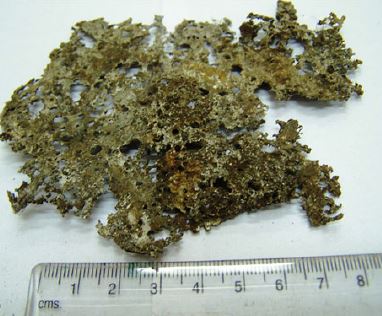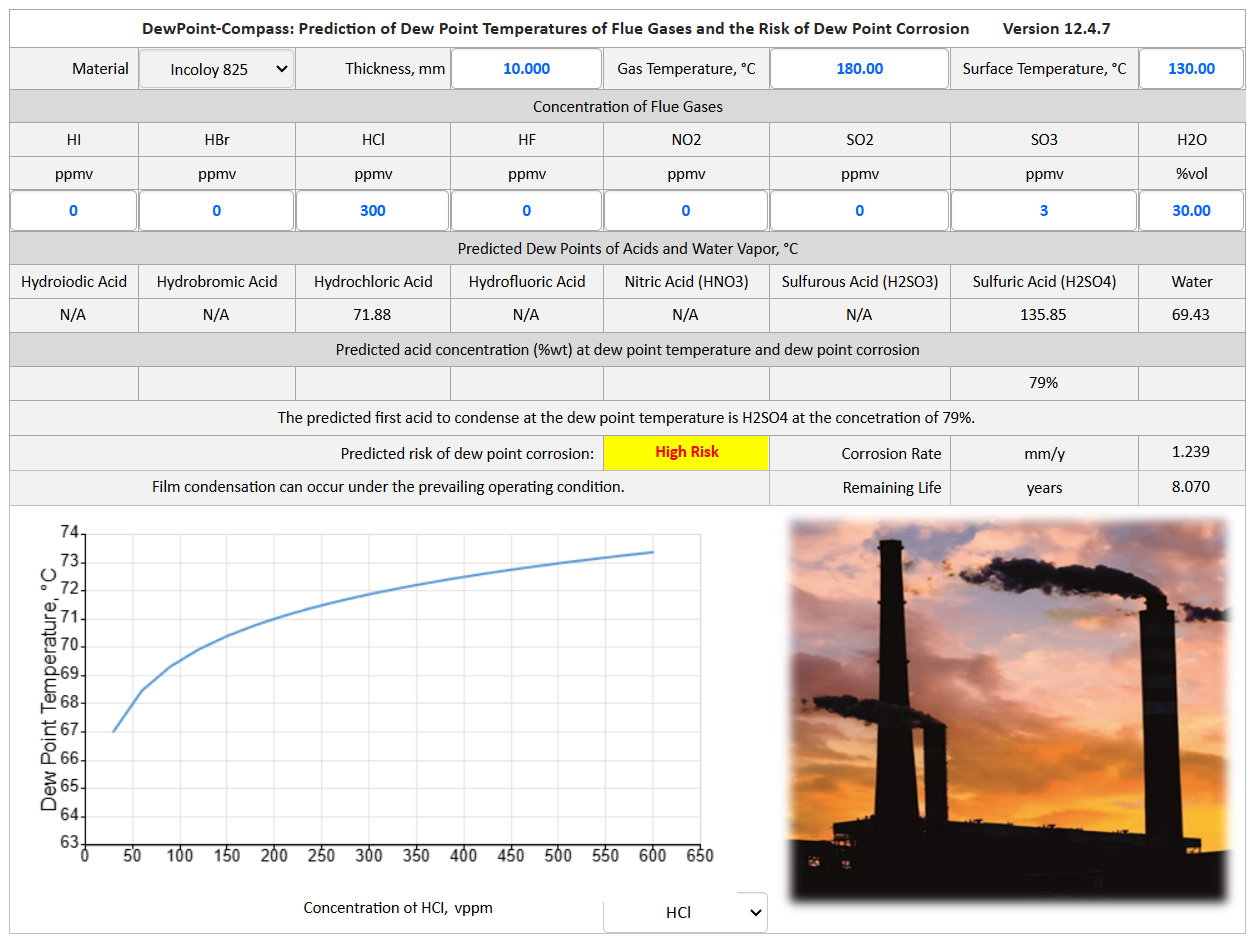|
|
|
|
• EC • Season Cracking • SSC • LME • MIC • SCC • Fatigue • Electrolysis • Stray Current • AC Corrosion • CUI • CUF • DewPoint Corrosion • Index |
|
Different Types of
Corrosion
|
|
Dew Point Corrosion |
|
|
Recognition of Dew Point Corrosion |
|
|
How to identify Dew Point Corrosion? Dew Point Corrosion occurs ONLY when the metal surface temperature falls below the dew point temperature of a flue gas. Dew Point corrosion typically results in excessive metal loss, leading to perforation or rupture.
What structures are affected by Dew Point Corrosion? All fired process heaters and boilers that burn fuels containing sulfur have the potential for sulfuric acid dew-point corrosion in the economizer sections and in the stacks. The stack is the most vulnerable unit in the gas-handling system because of poorly controlled operation of the furnace and other components of the gas train. Heat-Recovery Steam Generators (HRSG’s) that have 300 Series SS feedwater heaters may suffer chloride-induced stress corrosion cracking from the gas side (OD) when the temperature of the inlet water is below the dewpoint of hydrochloric acid. 300 Series SS feedwater heaters in HRSG’s are potentially at risk if the atmosphere of the combustion turbine includes chlorine.
|
|
|
Mechanisms of Dew Point Corrosion |
|
|
What causes dew point corrosion? The concentration of contaminants (sulfur and chlorides) in the fuel and the operating temperature of flue gas metal surfaces determine the likelihood and severity of dew point corrosion. Since all fuels contain some amount of sulfur, sulfuric and sulfurous acid dewpoint corrosion can occur if the metal temperatures are below the dewpoint. The dewpoint of sulfuric acid depends on the concentration of sulfur trioxide in the flue gas, but is typically about 280°F (138°C). Similarly, the dewpoint of hydrochloric acid depends on the concentration of hydrogen chloride. It is typically about 130°F (54°C). Software tools such as DewPoint-Compass can be used to predict the risk of dew point corrosion under the prevailing operating conditions or to aid materials selection.
|
|
|
Prevention and Prediction of Dew Point Corrosion |
|
|
How to prevent dew point corrosion? Dew point corrosion can be prevented through:
How to predict dew point corrosion? Dew point corrosion can be predicted using software such as "DewPoint-Compass: Prediction of Dew Point Temperatures and The Risk of Dew Point Corrosion". Click the link for details on the software.
|
|
|
For more details on Dew Point Corrosion |
|
|
Where can I learn more about dew point corrosion? More details on dew point corrosion are included in the following corrosion courses which you can take as in-house training courses, course-on-demand, online courses or distance learning courses:
If you require corrosion expert witness or corrosion consulting service on dew point corrosion, our NACE certified Corrosion Specialist is able to help. Contact us for a quote. |
|
|
Home | Subject Index | Contact Us | PDF |
Copyright © 1995-2025.. All rights reserved. |

